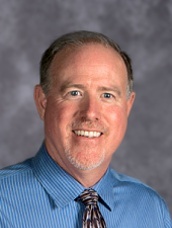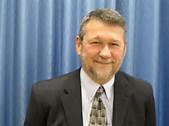If voters say yes on Aug. 26, the Wilder School District will put some money from a supplemental property tax levy into athletics and the academic decathlon, to keep the district from imposing a pay-to-play program.
Some money would be used to offset employee health insurance premiums — in hopes of keeping employees from moving to another school district.

It’s the second time around in this rural Canyon County district; voters rejected an identical two-year, $598,000 levy on May 20. That makes Wilder an outlier. Forty-eight Idaho school districts have approved more than $120 million in levies so far in 2014.
But one common thread unifies the four districts that have failed to approve levies. They are among the poorest districts in the state. With more districts relying on supplemental levies to plug budgetary holes — and critics questioning whether the state is meeting its constitutional mandate to fund schools — is Wilder among Idaho’s have-nots?
What the numbers say
School poverty is generally measured by the number of students that qualify for free or reduced-price lunch. In 2013-14, across Idaho’s 115 districts, 48.8 percent of students were eligible for subsidized lunch.
But in the four districts where levies failed in May, the poverty rates were much higher.
| District | Levy amount | F/R lunch eligibility | State rank |
|---|---|---|---|
| Wilder | Two years, $598,000 | 93.9 percent | 1 |
| Lapwai | One year, $499,000 | 88.8 percent | 2 |
| Glenns Ferry | Two years, $1 million | 73.3 percent | 12 |
| Bruneau-Grand View | Two years, $1.2 million | 69.6 percent | 18 |
Even among the poorest districts, the success rate on supplemental levies remains high. Eight districts — Aberdeen, Buhl, Caldwell, Culdesac, Kamiah, Richfield, Shoshone and Wendell — managed to pass supplementals in 2014, even though more than two-thirds of their students qualified for free or reduced-price lunch.
Meanwhile, among the 10 districts with the lowest poverty rates in Idaho, seven went to the voters with supplementals. All seven passed. That list includes the state’s largest district and the year’s largest supplemental levy: West Ada’s two-year, $28 million proposal.
Trying again
In May, Wilder’s levy fell 25 votes shy of the simple majority needed for passage.

Superintendent Jeff Dillon is confident about the Aug. 26 election, but passing the levy will require a more concerted get-out-the-vote effort. “We know we have a certain number of individuals who will always vote no.”
Wilder isn’t alone.
Bruneau-Grand View will take its third shot at passing a levy on Aug. 26, after the May levy failed by 12 votes. After the May election, the district said it would close its two elementary schools and convert its Rimrock Junior-Senior High School into a K-12 facility. The elementary schools will remain open for 2014-15, the Owyhee Avalanche reports, and the district will seek a one-year, $600,000 levy, down from two years and $1.2 million.
Lapwai, on the Nez Perce Indian Reservation in north-central Idaho, has scaled back its one-year levy request from $499,000 to $250,000. The district has also made staff cuts, including 4 ½ teaching positions and a mental health counselor, Superintendent David Aiken told the Lewiston Tribune. Class sizes will be larger, he told the Tribune, and the loss of mental health counseling will be a “huge loss” for the district.
Is it constitutional?
The protracted debate over Idaho school funding centers on one passage in the Idaho Constitution: “It shall be the duty of the legislature of Idaho, to establish and maintain a general, uniform and thorough system of public, free common schools.”
Supplemental levies are widespread in Idaho — 94 districts had one on the books in 2013-14. But they aren’t uniform.

For one thing, wealthier or faster-growing districts can levy a tax against a large, growing property tax base, thus minimizing the increase in the overall tax rate. In poorer districts, levies will have a more profound impact on a limited number of property owners.
As more districts rely on supplementals, the tax rate for schools hinges “on the willingness of the district’s voters to tax themselves to fund the education of children in the district,” according to a 2013 study written by retired state economist Michael Ferguson.
Ferguson says this disparity would appear to violate the constitution’s mandate for a uniform state school system — a mandate that falls not to districts, but to the state.
Is it fair?
When University of Idaho professor Kathy Canfield-Davis surveyed rural school administrators in North Idaho, tight budgets were a recurring theme. And when rural superintendents request supplemental levies, they worry that their schools are becoming a burden on communities already in crisis. “People are leaving rural communities because there are no jobs,” Canfield-Davis said.
Canfield-Davis presented her findings on Aug. 5 at the Idaho Association of School Administrators conference; Dillon was among the superintendents in the audience. He is cognizant of Wilder’s economic challenges. The average household income is under $25,000, and more than half of the homes do not have Internet access. “People are trying to survive.”
But he believes another failed levy will have a negative effect in the classroom, and the community. Schools need continuity, and Dillon is worried about staff turnover. A pay-to-play fee program would simply not work in Wilder. Families wouldn’t be able to afford the fees, athletic programs would fall by the wayside — and without extracurricular activities as an outlet, kids would be more inclined to find trouble.
Between now and Aug. 26, a big part of Dillon’s job is getting the word out about the levy, telling voters about what he sees at stake. “I haven’t reached enough of them yet.”
